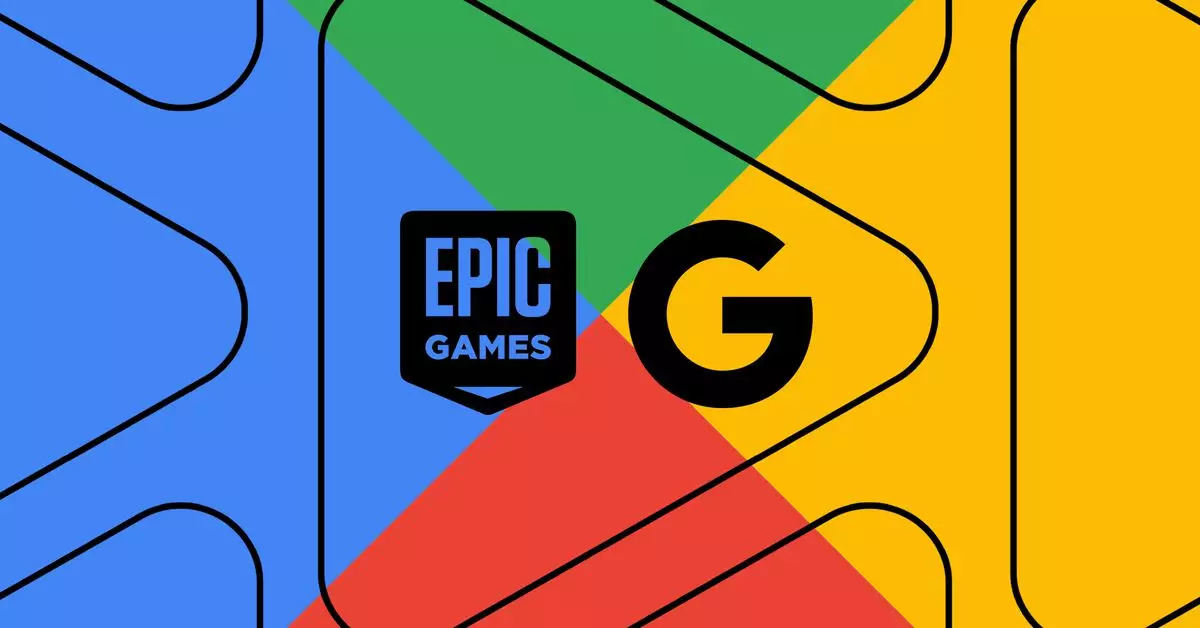In a game-changing maneuver, Telefónica, the telecommunications giant operating prominent brands like O2 and Movistar, has announced its decision to preinstall the Epic Games Store on all compatible Android devices sold within its extensive network. This historic move, marking the first instance of the Epic Games Store being preloaded on consumer smartphones, aims to open channels for Epic’s popular game Fortnite, potentially positioning the store as a formidable competitor in the fragmented app marketplace dominated by Google Play Store. This strategic partnership signals a remarkable shift in the mobile landscape that could challenge existing monopolies.
Rethinking App Distribution
The underlying motivation for this partnership stems from a desire to expand Epic Games’ reach beyond traditional app distribution methods. By embedding its store directly into smartphones, Epic is less reliant on Google’s ecosystem, which has often been criticized for its restrictive policies and revenue-sharing practices. The launch of the Epic Games Store on mobile devices comes on the heels of a decisive court ruling that favored Epic Games in its ongoing battle against Google, asserting that the latter has engaged in monopolistic practices that limit competition and innovation within the app space.
This ruling not only empowers Epic to advocate for a more equitable technology marketplace but also sets a precedent that could inspire other developers to pursue similar paths. By effectively bypassing Google’s intermediary role, Epic aims to secure a larger share of revenue for itself while providing users with an alternative avenue to discover and download games and apps.
For Telefónica, this decision seems not just fortuitous but also strategic. By aligning itself with Epic Games, the telecom giant has a chance to enhance its value proposition for consumers, making its devices more appealing with added offerings. It also solidifies Telefónica’s reputation as an innovator in the telecom space, unafraid to stand against called industry norms. As more players recognize the discontent surrounding Google’s policies, partnerships like these could emerge as vital to retaining relevance in the tech sector.
Additionally, Telefónica has a history of collaboration with Epic Games, having previously facilitated Fortnite transactions through mobile billing for its Movistar customers in Spain. This established relationship likely played a crucial role in facilitating the current agreement, showcasing how prior partnerships can bear fruit in unexpected ways. The continuation of this partnership could ensure a steady stream of revenue for Telefónica, aligning their interests with those of Epic Games.
For Android users, this development heralds an exciting turning point. With the Epic Games Store at their fingertips, mobile gamers can look forward to greater access to titles beyond what’s traditionally available on the Google Play Store. In a broader sense, this initiative encourages a more diverse mobile gaming ecosystem where developers are not constricted by a single platform’s restrictions. Additionally, users may eventually see a more competitive marketplace that fosters innovation and provides a wider array of choices.
However, the potential repercussions for Samsung, one of the leading Android device manufacturers, must also be considered. The juxtaposition of having a competing game store preinstalled on its devices, particularly given Epic’s legal tussles with the company, raises questions about the long-term implications for this relationship. It highlights the complexities of the tech landscape where alliances can shift with dramatic rapidity.
While the prospects are promising, Epic Games and Telefónica must navigate a labyrinthine path of challenges ahead. The success of this initiative hinges on user adoption and the ability to withstand pushback from other industry behemoths, particularly Google. The intense scrutiny over monopolistic practices will likely continue to influence how technology companies interact and strategize moving forward.
Furthermore, the Epic Games Store must ensure it is stocked with engaging and appealing content to attract users away from their habitual reliance on the Google Play Store. Expanding beyond just games and incorporating diverse app offerings could establish the Epic Games Store as a viable competitor in the app market.
What unfolds from this collaboration between Telefónica and Epic Games is yet to be seen, but it could very well signify the dawn of a new era for mobile app distribution — one where competition thrives, and user choice reigns supreme.


Leave a Reply